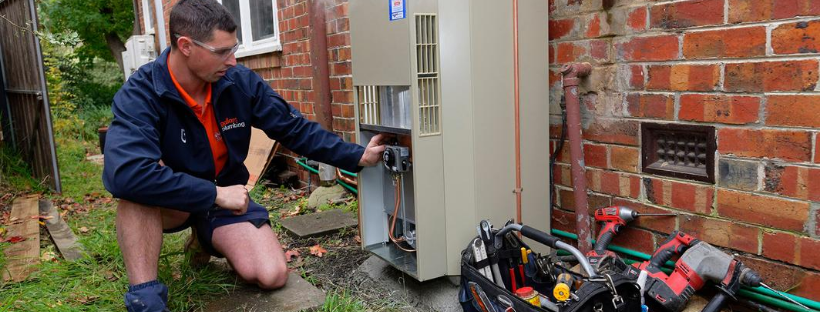How to choose the right hot water system for your property.
When it comes to choosing a hot water system for your property, the options can be overwhelming! What’s better gas or electric? What does continuous flow mean? How much is a replacement going to cost me? What does energy star rating mean? In this post, we’ll guide you through your different hot water system options, as well as some frequently asked questions.
What are my different hot water system options?
There are generally 2 different options when it comes to choosing hot water units and they are either a gas unit or an electric unit. And from there, there are 2 more options which are either continuous flow units or storage units.
We’ll first start with the storage unit. A storage unit is a cylinder which heats water using either electricity or gas. These types of unit provide hot water relative to the amount of water stored inside the tank. Storage tanks come in a variety of different sizes to suit different property needs.
Secondly is the continuous flow hot water units. They do not have any storage tanks but put simply, these types of units heat up water on demand.
Gas hot water units use predominantly natural gas and sometimes LPG to heat water in either the storage form or the continuous form. Within Melbourne, your property will generally be connected to natural gas. Outside the metropolitan area, your property may need gas supply through the use of an LPG cylinder.
Electric hot water units heat water by using, you guessed it, electricity. Electric units are typically the cheaper of the two units to install, but more expensive to run. Thankfully a lot of electric units have the functionality to heat the water within the units during off peak hours, reducing energy usage.
What’s better a gas or electric system?
Each type of hot water system has its pros and cons.
Firstly electric systems are a great choice because they tend to have lower upfront costs and are reliable ways to produce hot water. Some electric units have inbuilt technology to ensure that they can do the majority of their heating during off peak periods. On the downside, electric hot water units are almost always the most expensive to run over the long term.
Gas hot water systems typically produce less greenhouse gas emissions compare to the electric units. They are also considered to have a lower usage rate compared to the electric units. This makes them a cost effective long term option. Unfortunately gas systems are only viable if the the property is connected to mains gas, as relying on a gas bottle is more costly. A requirement when installing gas units is that they must be located outside or flued to an outside atmosphere.
Should I get a storage system or continuous flow system?
Both continuous flow and storage units provide their own benefits.
A positive of a storage system is that they’re typically more cost effective to install than your continuous system and have flexible installation options so you can either install them inside or outside. Storage systems typically come in a variety of sizes suited for a range of property types. Depending on the size needed for the property, storage tanks can be quite large and take up quite a bit of space. Storage tanks also require water to be constantly heated and ready for use, which can result in higher energy costs.
A positive of continuous flow systems is that they only heat water as needed and are very energy efficient. Having a continuous system means you’ll never run out of hot water, and these types of systems are known to last longer. Continuous flow units require less maintenance compared to their storage systems. On the negative side, continuous units can be more expensive to purchase and install.
What are the price ranges for different units and installation?
The price of hot water units range depending on whether the unit is gas or electric, storage or continuous flow. Electric unit installations typically range from $1200 to $3500. Gas units typically range from $1400 to $4000. And Continuous flow units have a wider price range from anywhere from $2000 all the way up to $10,000.
What size do I need?
The size of the hot water system needed for your property is determined by a number of components and these include the number of people living in the household, the number of bathrooms that are there, the number of hot water outlets and also how much hot water is generally used in the property. This is something that can be discussed with your plumber onsite, where we can determine your individual needs.
How long should hot water systems last?
Hot water systems should typically last between 10-15 years depending on the actual unit. But some can last as little as 5-7 years. Factors which affect the lifespan of the unit include the maintenance or lack of maintenance completed on the unit overtime.
What can I do to prolong the life of my system?
To prolong the life of your hot water system, there are multiple maintenance tasks you can do. Servicing of the unit by a plumber should be done every 12 months, along with changing the PTR valve every 5 years and installing a pressure reduction.
How often should my hot water system be serviced?
Servicing of a hot water unit should be at least every 12 months. Each hot water unit is different and a plumber will be able to advise the recommend servicing.
What’s the typical warranty on hot water systems?
The warranty of a hot water unit is different depending on the manufacturer, but most units especially when they have been installed within the last few years have a warranty between 7 and 10 years.
What does the energy star rating mean?
The energy star rating of your hot water unit is related to energy efficiency and how efficient the model actually is relative to other models on the market. Energy star ratings range from 1 to 10 stars, and 10 being the most energy efficient possible.
Contact Gallant Plumbing today.
For any further information, contact our team on 1300 830 956 or through our online form. Without a compliance certificate, your plumbing works may not comply with the prescribed plumbing standards, codes and regulations. For Melbourne plumbers you can rely on, contact our team to experience the Gallant difference.








